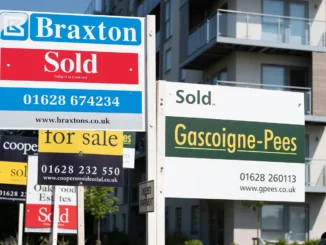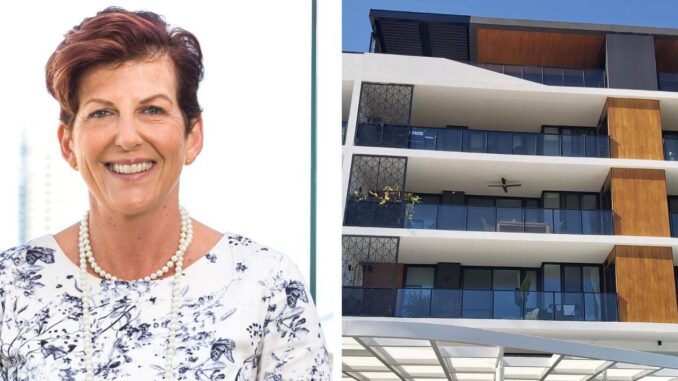
Homeowners whose properties belong to a strata scheme are feeling the pinch as the cost of living crisis causes quarterly levies to soar, forcing dozens out of their homes.
Strata fees or levies are a mandatory contribution paid by owners with properties located in a unit, villa, townhouse or duplex complex and fund the building’s maintenance costs.
Tina Claire is one of several property owners across the country who have witnessed their strata fees soar by as much as 40 per cent annually in recent months.
In 2021, the university educator from Perth and her retired husband purchased an apartment in Jolimont, 5km west of the CBD, where the strata levies were $8300 per year.
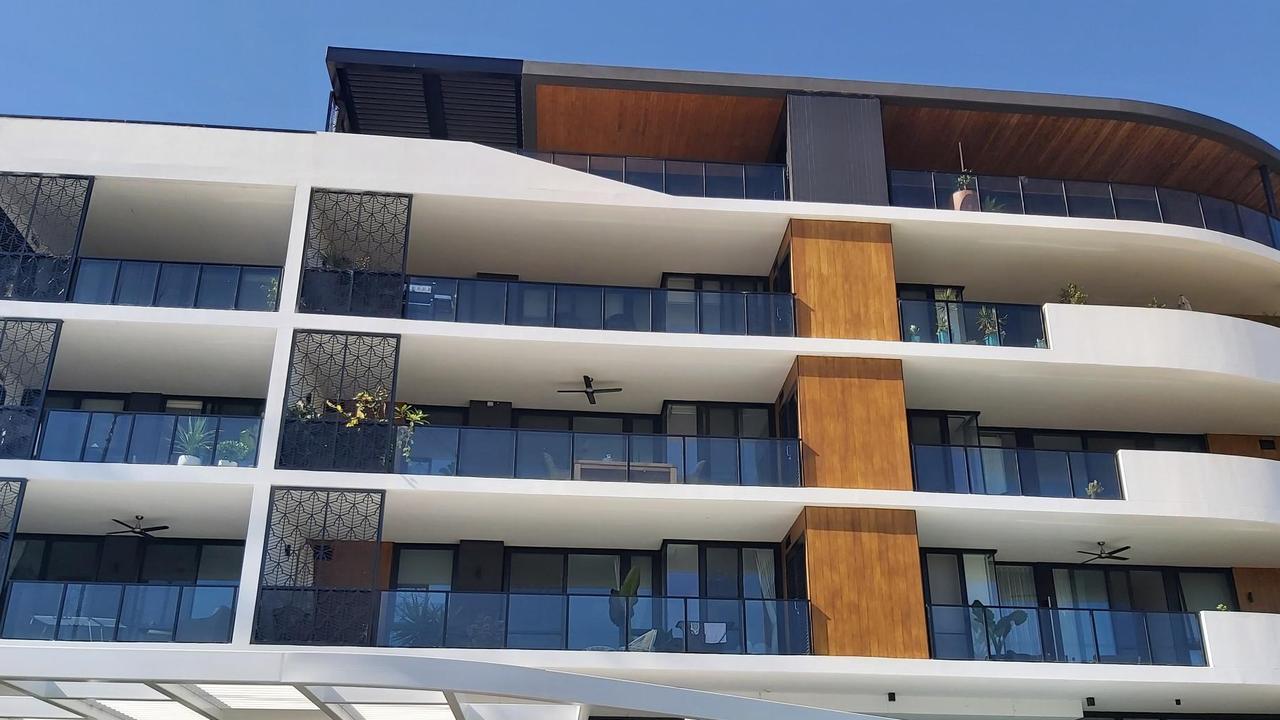
The exterior of Tina Claire’s apartment block where strata fees are $12,300 per year. Picture: Supplied
The couple own the largest lot in the complex which has a pool and gym, a private dining room, several common areas and has two elevators.
“At the time of purchasing, the strata levies had a considerable influence on our decision to buy as we thought they were reasonable,” Ms Claire told news.com.au.
The pair were notified by their real estate agent upon purchase their levy would likely rise between 5 to 10 per cent within the next 12 months to keep up with rising costs.
So when the news came at their Annual General Meeting (AGM) last year that they were expected to fork out an additional $1000 each quarter to service a $12,300 annual strata levy, the pair were gobsmacked.
“My partner and I were devastated … the increase was over 40 per cent,” Ms Claire said.
The strata fees for the couple’s property had risen by 48 per cent, resulting in payments of $3075 every three months.
“At the AGM, other residents questioned it and the elected chief operating officer (COO) also made inquiries as to how they could justify such a huge increase,” Ms Claire added.
The homeowner said the strata manager told residents “levies are always lower in the first year” and “they had underestimated costs”.
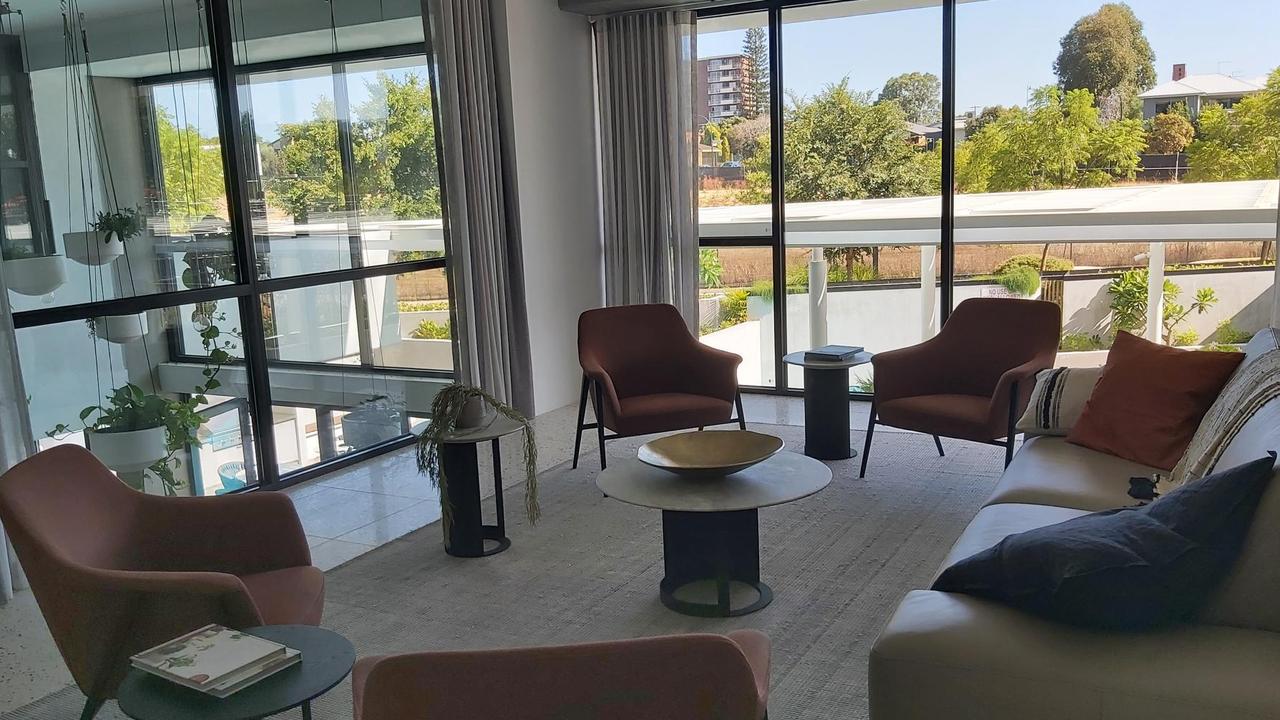
Ms Claire and her husband say rising strata fees are making apartment living unsustainable. Picture: Supplied.
It was argued the costs of landscaping, cleaning and waste management services had gone up considerably and requirements to meet the 10 year plan for the reserve fund “contributed significantly” to the increase.
“In the end it was decided to accept the budget with an opportunity for the new COO to review. Unfortunately, the COO decided to accept the new fees,” Ms Claire said.
While residents plead their case through inquiries made to the Real Estate Institute of Western Australia (REIWA), Ms Claire and her partner tried on multiple occasions to negotiate with the developer and strata manager “to no avail”.
Now the Perth university educator who is close to retirement age said she and her husband are facing “huge financial pressure” and are left with little choice on what to do next.
“Although we really like the location, apartment and the community, the increase in strata levies has made it very difficult to sustain this way of life,” she said.
The couple are now surveying the market to find a smaller apartment or townhouse they can afford in the area, however Ms Claire said it’s “proving very difficult”.
“The cost of moving is price prohibitive – stamp duty, agent’s fees, (the list goes on),” she said.
While the Perth university educator has chosen to bite the bullet and stay at her property for now, reports to the Australian Apartment Advocacy (AAA) reveal other strata payers face no other option but to sell.
AAA Chief Executive Officer Samantha Reece told news.com.au the “sweet spot” for levies, which is about $1000 per quarter, is putting a strain on homeowners’ budgets.
“We’re receiving probably 10 to 15 calls a week from apartment owners across the country who are suddenly seeing their levies or fees jump by 30 to 40 per cent and they can’t work out where that increase came from,” she said.
Have a similar story? Get in touch – rebecca.borg@news.com.au

Australian Apartment Advocacy chief executive officer Samantha Reece. Picture: Supplied
While some homeowners like Ms Claire don’t believe they’re getting value for money for the strata fees they’re paying, Ms Reece said it’s mainly the hidden costs driving up payments.
“When we drill down, it‘s to do with predominantly insurance costs, and also a number of the states like New South Wales, Victoria, and WA and now also required to do the 10 year maintenance plan,” she said.
The CEO said residents on a fixed income and retirees are feeling the impact the most, while those living in Brisbane, Melbourne and Sydney are more prone to strata rises.
Those renting an apartment in a strata complex may not have to pay the levies, but this doesn’t mean they won’t feel the pinch as their landlord may decide to increase the rent to keep up with strata repayments.
“I certainly feel for the tenants very much because despite the fact the government across every state is talking about affordability, they’re not actually doing anything proactively about it,” Ms Reece said.
But it’s not all doom and gloom for homeowners on a strata plan with the property expert sharing some handy tips to help strata payers get some “more bang for their buck”.
Rule number one is for strata payers to attend their AGM.
“It is where the budget is set for the forthcoming year and provides an opportunity for owners to question how the finances have been calculated,” Ms Reece said.
“If you don’t attend the AGM and vote then you have no recourse and will be forced to pay the levies set – so exercise your voting power!”
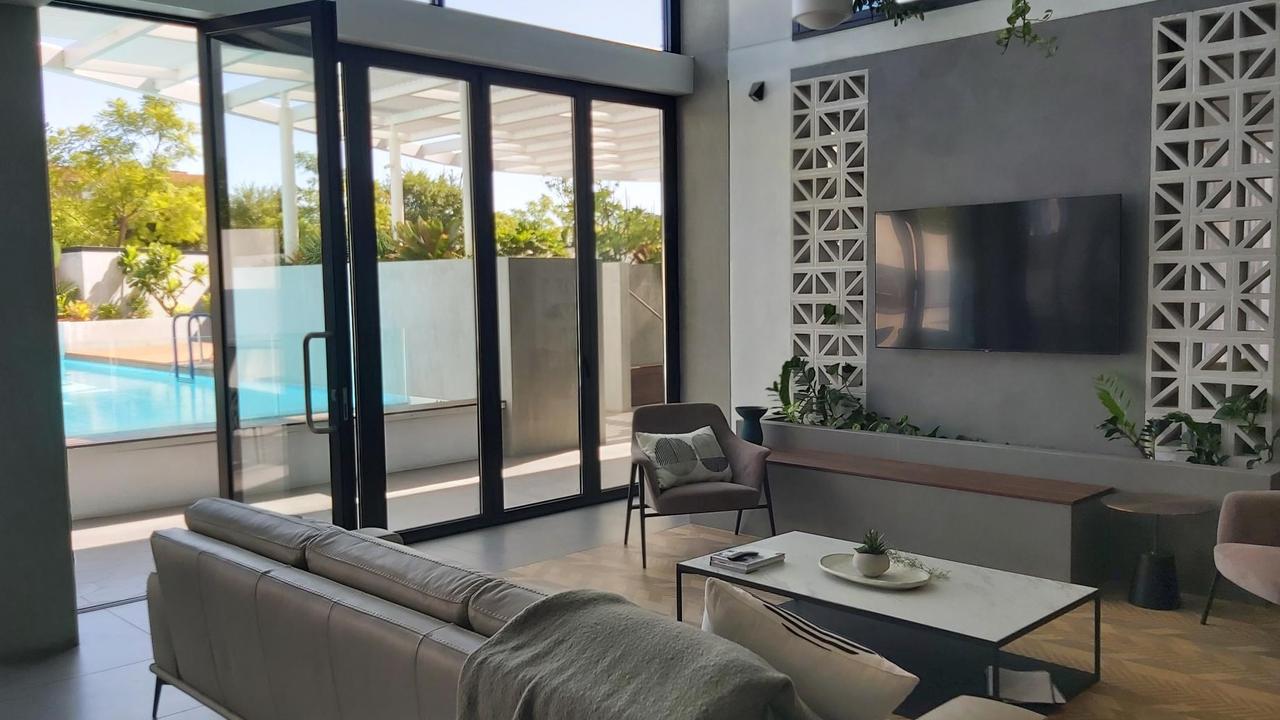
Ms Claire and her husband love the area they live in but rising strata costs are forcing them to look elsewhere. Picture: Supplied
Secondly, Ms Reece urges Strata Committees to secure three quotes for the services included in the budget to see where the better and more affordable deals lie.
Another handy tip includes evaluating how levies are calculated based on unit entitlements to ensure all lots are paying their fair share of the bill.
“AAA has witnessed first hand where the developer has retained the penthouse and charged a much lesser rate for his levies – spreading the remaining costs over the other apartments, therefore unfairly inflating the expense to owners to the developers benefit,” Ms Reece said.
Finally those buying off-the-plan are encouraged to ask for a three-year forecast as developers often set “unrealistically low” levies with the intent to appear attractive before increasing them in the following years.
Ms Reece’s handy tips are suitable for both current strata payers and those looking at joining a strata plan in the future as apartment approvals soar across the states.
“Owners – you have every right to scrutinise the levies to ensure that you are receiving the best value for money,” Ms Reece said.
Source: www.news.com.au

